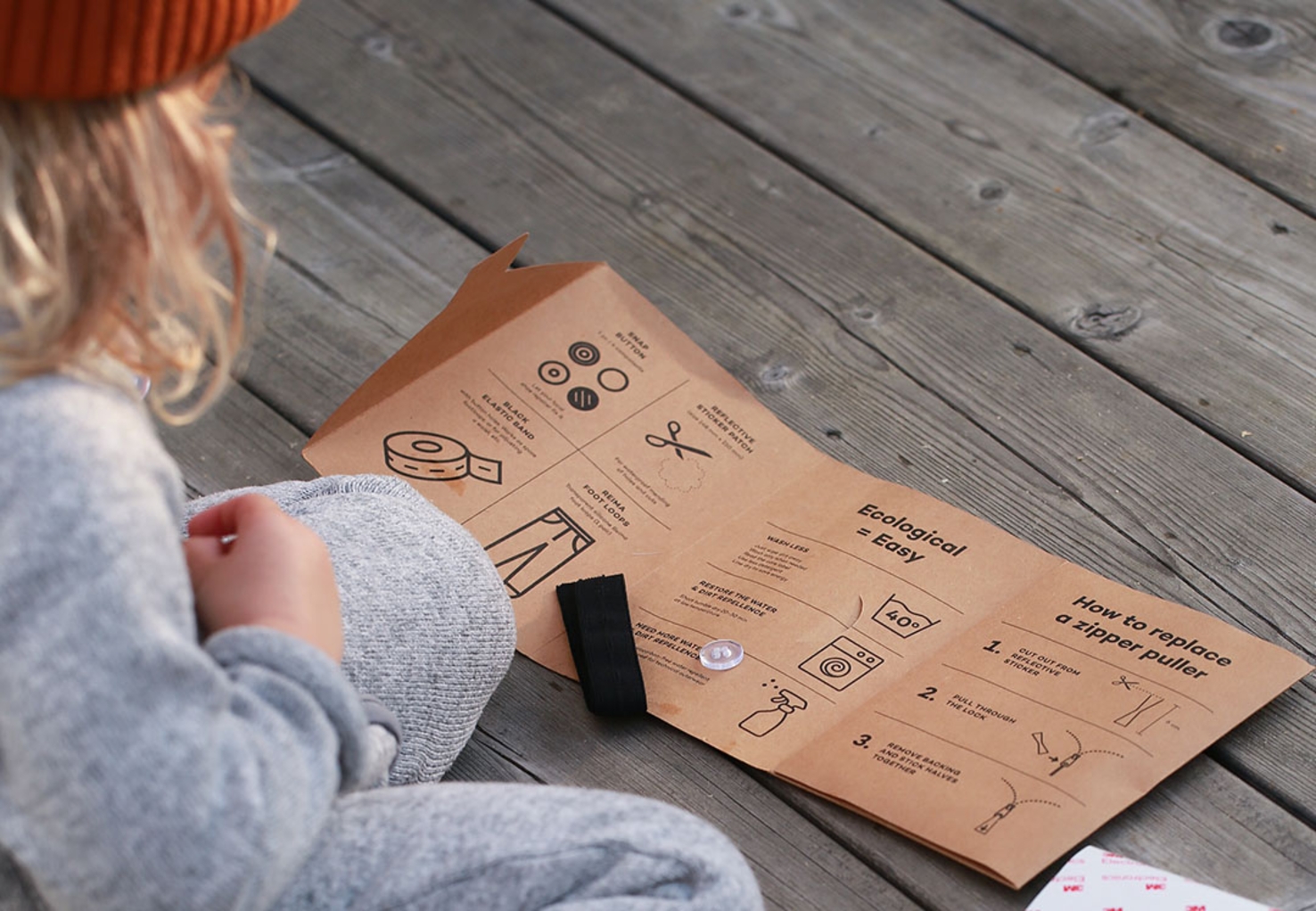Textile Redesign Jam challenged student teams from four countries to solve circular economy challenges
The Design Jam, implemented by the Baltic2Hand project, brought together students and textile companies from Finland, Sweden, Latvia and Estonia.

At the international Textile Redesign Jam held at the turn of February and March, students from four different countries were challenged to solve genuine circular economy challenges for companies in the textile sector. The event was organised by the Baltic2Hand project coordinated by Laurea with the aim of promoting the reuse of textiles and reducing textile waste.
The two-day Design Jam took place online where teams of students from different countries worked intensively on development challenges. The teams utilised service design methods and progressed through the testing of ideas, concepts and prototypes to the final solution, which was presented to the commissioning companies at the end of the Jam.
Five companies commissioned the challenges: Reima, Kesko, Lindström, GS1 and Materijalivoog.
Reima's challenge activated consumers to extend the life cycle of clothes through maintenance services
One of the companies that participated in the Textile Redesign Jam was the Finnish Reima, known for its children's clothes. Sustainability is a key value for Reima, which was founded in 1944 and exports clothes to more than 50 countries. Sustainability extends from material safety and environmental friendliness to responsibility in the production chain.
– At Reima, we can help ensure that our clothes are safe and able to withstand children's play. We also want consumers to be able to prolong the life of their clothes, and this is something we wanted to develop with the students as well, says Noora Tavares, Global Content Manager at Reima.
Reima challenged the student teams to think how companies could better communicate about the importance of clothing maintenance and encourage consumers to use the maintenance services provided by Reima's partner.
– We were eager to hear the ideas of students who are very familiar with the content used on digital platforms. We also hoped for new perspectives on things we are familiar with, but also confirmation of previous assumptions, Tavares says.
– As for the results, the student teams did really well, and they tackled our challenge very thoroughly. The value was clear for both the consumer and Reima in every solution.
Design Jam concept enables rapid innovation
On the first day of Textile Redesign Jam, Noora Tavares got to answer the student teams' questions during the Q&A session. The commissioners we also able to monitor the progress of the teams through the Miro application, which served as a platform for co-creation, where each company's challenges progressed on their own paths.
Tavares was impressed by the students' work:
– The students worked very efficiently. It's also valuable that they gain experience of such a sprint-style working method already during their studies, as it is widely used in working life – also at Reima, Noora continues.
Salla Kuuluvainen, Project Manager of the Baltic2Hand project at Laurea, was also pleased with the Jam:
– This Jam gave students a great practical example of how companies solve challenges related to the circular economy, Kuuluvainen says.
– Our goal for the project is to work closely with companies in the sector. The Jam represented the kind of co-creation that we want to include in future workshops of the project.
Baltic2Hand project
Do you want to make your textile company more in line with the circular economy? In April 2024, the Baltic2Hand project will launch a series of workshops for textile companies where they can flexibly experiment with circular economy business models, services or other solutions that might suit them. Read more about the project (balticsecondhand.eu).
The project is implemented by Laurea University of Applied Sciences, Turku University of Applied Sciences, Latvian Chamber of Commerce and Industry, Tallinn Business Incubators Foundation and Sustainability InnoCenter. The project takes place between 1 April 2023 and 30 March 2026.
The Baltic2Hand project has been funded by the Interreg Central Baltic 2021-2027 programme. The project has been partly funded with the support of the European Union.
More information:
- Salla Kuuluvainen
- Specialist
- Salla.Kuuluvainen@laurea.fi
- Tel 0505337078